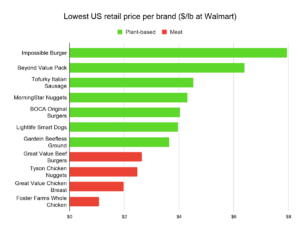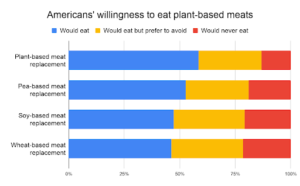This post originally appeared in the monthly farm animal welfare newsletter written by Lewis Bollard, our program officer for farm animal welfare. Sign up here to receive an email each month with Lewis’ research and insights into farm animal advocacy. Note that the newsletter is not thoroughly vetted by other staff and does not necessarily represent consensus views of Open Philanthropy as a whole.
Plant-based meat’s resilience has been a rare silver lining during COVID-19. Worldwide, the conventional meat industry continues to lobby for government bailouts, fail to protect its workers, and carry out grisly on-farm “depopulations.” But plant-based meat is thriving:
-
In China, Beyond Meat signed five major new partnerships, with Starbucks, retailers Alibaba and Metro, distributor Sinodis, and Yum China (owner of KFC, Pizza Hut, and Taco Bell). Cargill started producing meat alternatives for the Chinese market, including plant-based scallops. Nestle announced plans to sell plant-based meat there by year’s end, and Chinese plant-based startups Zhenmeat and Starfield disclosed new investments and product launches.
-
In the rest of Asia, Thailand’s largest meat company, CP Foods, launched a plant-based line, as did Malaysian, Singaporean, and Indian startups. Two Japanese meat giants began selling plant-based meat, as a Japanese government fund invested in the space. A South Korean investor led Impossible Foods’[1]Disclosure: Open Philanthropy invested in Impossible Foods in 2016 latest $500M funding round, which included new investments from the Singaporean and Hong Kong funds who co-led its last funding round.
-
In Latin America, Brazilian agribusiness giant Marfrig publicized its plans to roll out plant-based burgers by year’s end. (Brazil’s two other biggest meat giants, Seara and JBS, rolled out their plant-based burgers last year.) Chile’s NotCo became likely the highest valued non-US plant-based startup, as it closed a new $85M funding round.
-
In Europe, the UK’s largest retailer, Tesco, launched more than 30 new own-brand plant-based products, as its CEO wrote that the UK should eat “less meat and dairy.” Dairy giant Danone declared its ambition to more than double its plant-based sales worldwide to around €5B by 2025, while Unilever shared that a third of its products are now plant-based. Nestle reported that plant-based sales were up 40% in the first half of the year, and its CEO called plant-based “a once-in-a-generation opportunity.”
-
In the US, Starbucks started selling Impossible breakfast sandwiches, as did Burger King, while KFC began a new trial of Beyond Fried Chicken. Impossible got into Walmart, and Beyond Meat into Sam’s Club, with the brands now available in 9K and 25K respectively of the US’ roughly 40K grocery stores. US retail plant-based meat sales continued to average about 40-50% above last year, putting them on track to surpass $1B in retail sales this year.
As a result, plant-based meat is becoming ever-more widespread and convenient. But it’s still not competing with traditional meat on one key attribute: price.
The Price Problem
The average price for meat alternatives sold in US grocers’ meat departments last year was $9.87/lb, twice the average price of beef ($4.82/lb), and fourfold the average price of chicken ($2.33/lb). Frozen meat alternatives are a bit cheaper, most recently averaging $6.60/lb, but that only puts them on par with veal ($6.67lb).
This reflects plant-based meat’s positioning as a premium product. It’s exciting that 4-5% of US supermarkets’ refrigerated meat product lines are now plant-based, given plant-based still accounts for only 0.3-.4% of meat sales by volume. But supermarkets likely only tolerate this discrepancy because they can charge a bigger markup on plant-based products.
This price imbalance may matter more than ever in the coming years. With an impending global financial recession, the FAO predicts that global meat prices will continue to fall, and only the cheapest meat — poultry — will continue to grow its production this year. (More happily, the FAO predicts total pork and beef production will fall for the first time in years.) So what can we do to help plant-based meat compete on price with ever-cheaper meat?

The Wisdom of the Old
Startups, led by Beyond and Impossible, have revolutionized plant-based meat with their innovations in taste and marketing. US plant-based meat retail sales rose by just 1-3% annually from 2013 to 2016, the year when both the Beyond Burger and Impossible Burger went on sale. Since then, US plant-based meat retail sales have grown by 16-18% per year.
But established plant-based companies may have more to teach us on price. The two best-selling plant-based meat brands in US retail last year were Morningstar and Gardein, founded in 1975 and 2003, with 25% and 15% of sales respectively. Along with Lightlife and BOCA, both founded in 1979, these four brands also have the lowest prices (see graph above).
How do these established companies achieve lower prices? One factor probably isn’t worth replicating: Morningstar, Gardein, and BOCA sell almost exclusively frozen products. Supermarkets typically mark frozen products up less than refrigerated ones, on which retailers charge a premium to offset increased spoilage. But this may limit the products’ potential, given a recent PBFA-Kroger study suggests that plant-based meat sells better in the (refrigerated) meat section, where 67% of US supermarkets now say they sell at least some meat alternatives.
Two other factors behind the established companies’ lower prices may hold more promise: a focus on cheap ingredients and production efficiency.
Cheap Inputs, Cheap Outputs
One of the biggest trends in plant-based meat is toward novel proteins, like mung beans, potatoes, fava beans, chickpeas, lentils, oats, lupine, and faba. This is exciting: some of these proteins may offer functional and environmental benefits. But there’s a risk to the whole industry moving in this direction — as some insiders have suggested to me it may.
Much of the low price of conventional chicken can be explained by the industry’s reliance on just three crops — corn, wheat, and soy — which currently sell for just 6–15 cents/lb. Morningstar, Gardein, BOCA, and Lightlife also rely primarily on two of those crops, in the form of vital wheat gluten, and soy protein concentrate and isolate. These crop byproducts are slightly pricier than chicken feed, each selling in bulk for around 50 cents/lb on Alibaba, though companies don’t have to feed them through a chicken first.
Novel proteins are much pricier. Mung bean protein starts at $2/lb on Alibaba, potato protein starts at $3/lb, fava bean protein at $4/lb, chickpea protein at $5/lb, and lentil protein at $10/lb. Slightly less novel pea protein is cheaper, starting at $1/lb, though the non-GMO and organic varieties preferred by many startups are pricier. And most of these are already large-scale crops, so it may be hard to bring prices down a lot further.
Industry insiders justify the move to novel proteins based largely on a belief that consumers dislike soy and wheat protein. They point, for instance, to the rapid growth in “soy-free” and “gluten-free” US product claims. But are consumer beliefs strong enough to justify the cost hit?
A new, unpublished, Rethink Priorities survey investigated this claim. They found that slightly more Americans said they’d eat pea-based meat replacements than soy or wheat-based versions. But even more said they’d eat generic “plant-based” meat replacements, which may just show the perils of specificity — why the chicken industry doesn’t market its product as “GMO soy-fed chicken.”
Nor is it obvious that US stigmas around gluten and soy apply to larger global markets. A 2017 survey of 2,000 Chinese consumers found they were just as interested in trying “mock meats” made of wheat or soy as of mycoprotein or potato protein. And, as of 2017, the vast majority of new European plant-based meats were based on soy and wheat protein.

Scale and Simplicity
A related lesson is to focus on scaling relatively simple products. Morningstar, Gardein, Lightlife, and BOCA share another trait — they’re all owned by huge food conglomerates: Kellogg, ConAgra, Kraft Heinz, and Maple Leaf Foods respectively. This enables them to draw on their parent companies’ scale in manufacturing and distribution, and to focus mostly on the simple, processed products, like patties and nuggets, that these conglomerates know best.
By contrast, many startups focus on replicating novel products that their typically vegan founders miss: from steaks to fancy cheeses. For many, this focus on white space makes sense as a way to differentiate themselves in a crowded market. But the focus on novelty often causes them to rely for scale on contract manufacturers, who process their products with inconsistent quality and a consistent markup.
Rebellyous Foods is a notable exception. It’s pursuing just one simple product, plant-based chicken nuggets, and focusing on streamlining and scaling its production process. As its founder Christie Lagally explains, most plant-based manufacturing relies on off-the-shelf equipment never intended for this use, limiting production speed and quality, and requiring skilled technicians to make frequent repairs.
In focusing on production efficiency, Rebellyous is pursuing the strategy the chicken industry used to achieve its current global dominance. Since the 1930s the chicken industry has done little product innovation — the invention of McNuggets is still its proudest accomplishment. But it has lowered the price of chicken several fold by relentlessly cutting costs and breeding for feed efficiency (at great expense to the birds’ welfare).
Beyond and Impossible seem to be applying these lessons. Both have stuck to just a few products and invested in their own manufacturing plants. Beyond appears to have cut its cost of production from about $4.50/lb when it listed last year to $3.50/lb today (calculated based on dividing its production volume by its cost of goods sold in its most recent SEC filing). And Impossible switched to GMO soy last year — earning it the enmity of anti-GMO groups — likely mainly to cut its ingredient costs.
As the world’s three largest meat companies, Tyson, JBS, and Cargill, expand their plant-based offerings, there should be even more focus on scale and cost. Startups will likely continue to drive the most exciting innovations in the space. But we’ll need both that innovation and the big players’ relentless focus on efficiency and scale to make plant-based meat not just the right option, but the tastier and cheaper one.
